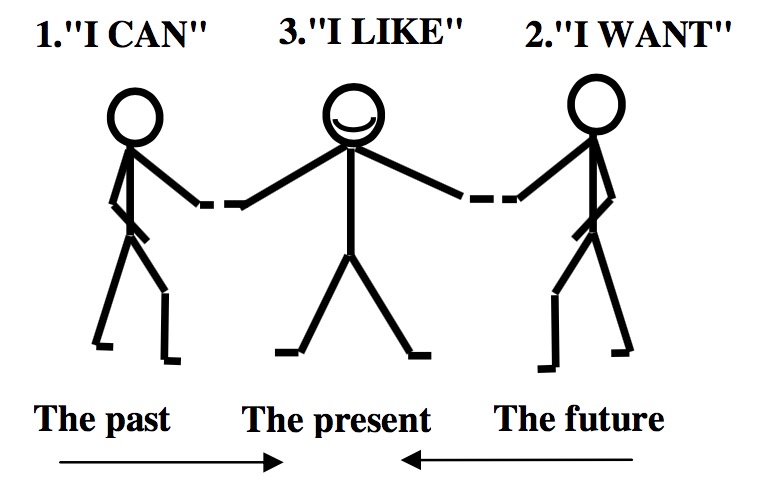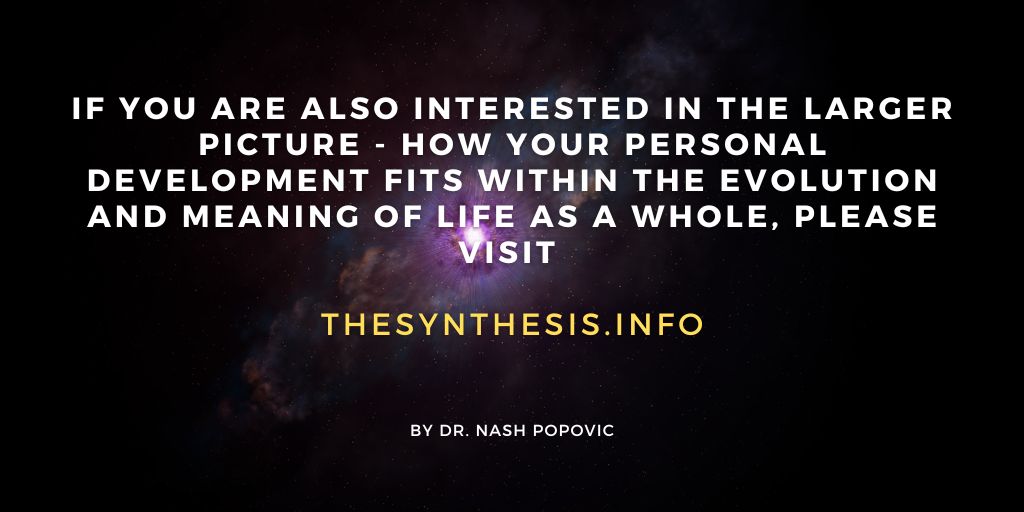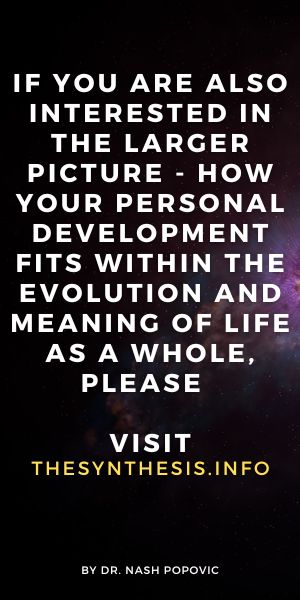58. Awareness of Others
When the pickpocket meets a saint, he sees only pockets.
Anonymous (appearing in all times and all places)
In this area we will first discuss skills that can help us understand others: listening, observing and empathy. These skills are of great value as they affect every aspect of social life. Two related topics will follow: the focus of attention and assessing others.
Listening
Listening is one of the main ways we become aware of the inner world of other people (what they want, think, feel, etc.). Listening seems straightforward but is, in fact, a sophisticated skill that can be developed by following these suggestions:
- Most importantly, really listen to others rather than using the time while they are talking to think about what to say next. If you need to think about what to say, you can take a short pause before responding. Your response will also be more meaningful if you really hear the other person first.
- It is important to acknowledge verbally or through body language (e.g. nodding) that something has been heard.
- Do not assume but check that you have understood others well by occasionally summarising or rephrasing what has been said.
- Attention is easier to maintain if you find a way to relate what the other is talking about to your own experience and interests (you are interested in stocks and shares, and somebody is talking about theatre – thought about investing in art?).
- Avoid mind reading and fortune telling (assuming that you know what the other thinks or will say respectively).
- Being open-minded also matters. This does not mean adopting the views of the other, but having the willingness to see things from their perspective (visiting does not mean staying).
- Questions can help if something is unclear but digging into what somebody is consciously or unconsciously avoiding, insisting on a disclosure, usually has the opposite effect.
- The distortions of one’s understanding are usually the result of adding something to what the other is saying. The following exercise can help you minimise this:
Bracketing: make a deliberate attempt to bracket your own assumptions, interpretations and expectations. Try, when listening, to take into account only what you hear. Do not assume that you know what the other person meant and refrain from making interpretations and jumping to conclusions. You can later compare the so obtained information with expectations and assumptions you had, and see if there are any differences. This exercise can help you avoid many misunderstandings and arguments.
You are a good listener if the other side feels understood emotionally as well as cognitively.
The focus of attention
What we pay attention to is also of great importance:
- The focus of attention can be on the content or on the person. It is important to decide what your priority is, as different foci require different skills. Listening, taking mental notes and memorising facts may be vital when focusing on the content, while empathy and non-verbal cues may matter more when focusing on the person. Being aware why somebody is talking also matters. For example, if the person seeks advice the focus should be on the content; if he wants to unload emotionally, the focus should be on the person. Giving advice in the latter case would miss the point – such mismatches are very common.
- The focus can also be widened or deepened. The former is about zooming out, getting as much information as possible in order to form a complete picture. The latter involves zooming in, focusing on selected information and ignoring the rest in order to go deeper or get a more detailed account (e.g. you may want to know about all guests at the wedding, or focus on one).
Observing
Face-to-face communication has two components: verbal and non- verbal, messages conveyed by facial expression and so-called body language (e.g. gesticulations). The body reflects mind processes, so paying attention to body language (especially if verbal statements seem inconsistent or incongruent) can provide you with additional information and clues. Research shows that the benefits of being able to read non-verbal cues include being better adjusted emotionally, more popular, more outgoing, and more sensitive.(1) There are a lot of misconceptions in this respect though (e.g. contrary to popular belief, people who are telling the truth are likely to look away and those who are lying may be looking into your eyes, as they believe that this will make them look more truthful). Alas, if a liar reads this, she may deliberately try the opposite! So, do not rely on what you heard or read but learn from your own experience, bearing in mind that not all people speak exactly the same body language.
Empathy
Empathy is about emotional understanding – understanding experientially, rather than just cognitively. It is important for good relationships and it also enriches one’s life. We cannot experience everything ourselves, but if we can empathise, we can have an inkling about how something that we haven’t experienced directly feels. Empathy is different from sympathy though. Sympathy means feeling for others which is not the same as understanding how they feel. Also, attributing to the other person what you would feel in the same situation is not real empathy (e.g. you may hate shopping, others may love it). Practice helps to get it right.
Developing empathy: when you listen to somebody, try first to empathise with her, understand how she feels and what she experiences, without sympathising and projecting yourself in her situation. Then, focus for awhile only on facts in order to sense the difference between these two states.
Assessing others
The perception of others is often followed by assessing and/or judging them. This can be useful and sometimes even necessary. However, there are some things worth considering here:
- We have a natural tendency to make judgments quickly, which is why they can easily be mistaken (e.g. somebody may be overweight because of a health condition rather than self- indulgence; or wear a tie that doesn’t match because it is the only one he has, rather than due to bad taste). So when making judgments about somebody, it may be worthwhile checking if you are jumping to a conclusion prematurely (e.g. are you sufficiently aware of her circumstances or true intentions?).
- Our assessments are often coloured by our expectations. You are less likely to be disappointed if you assess others on the basis of their own qualities rather than your expectations.
- We don’t have to assess others all the time. In fact, being non- judgmental can be beneficial as it fosters compassion. The following exercise can help you free yourself from the habit of judging and develop compassion for others. This is, in many ways, similar to ‘Self-compassion meditation’.
Compassion meditation: close your eyes and relax. Bring somebody to mind and observe your arising thoughts and feelings. Open up (it is safe, this is only your imagination) and let go of any judgments, positive or negative (e.g. ‘He is nice’ / ‘he is boring’) as well as any positive or negative emotional reactions (attraction / anger). If you do this and remain open, you won’t feel nothing; you will feel compassion that arises from awareness that you two have something in common: being on a journey between birth and death. When you experience compassion, you can expand. Bring more people in; even the whole of humankind (bear in mind though that this can be tough going if and when you have strong negative emotions about somebody).
(1) Goleman, D. (1995) Emotional Intelligence. London: Bloomsbury, p.97.
When we have done what we need to on the inside, the outworking will come about automatically.
Goethe (18/19c German writer and statesman)
This area is not about changing your job, wallpaper, country or partner – it is about changing yourself; in other words, your habitual cognitive, emotional and behavioural patterns.
What do you want to change?
Being able to make a personal change is essential. So this chapter will be very practical and to get the most out of it, it may be a good idea to start by thinking about something that you would like to change. Choose something small because this increases your chances of success and confidence. Define what you want to achieve in simple, clear and positive terms (for example, rather than aiming to lose weight, aim to be fit or to look good).
Prerequisites for successful change
‘I can’, ‘I want’ and ‘I like’ are three conditions for successful change. If all three are present, you can hardly fail!

‘I can’: we are all capable of both failing and succeeding. If you believe that you can’t change, it is true; if you believe that you can, it is also true. To strengthen 'I can', think about successful changes that you have made in the past. If you can’t remember any, just consider that if others can change, you can change too.
‘I want’: you need to believe that the change is worth your time and effort. Filling in this table can help you make it clear:
| Old pattern | New pattern | ||
| Advantages | Disadvantages | Advantages | Disadvantages |
|
|
|||
However, if wanting to change is only in your head, it may not be sufficient – the resolution needs to come from your gut. A half- hearted attempt is unlikely to succeed, so make sure that you really want to make a change. The stronger and deeper the feelings associated with the change are, the more profound the change will be. The following interventions can help in this respect.
Wanting change: imagine what your life will look like (in a few days, months or years) if you continue in the same direction. Then imagine vividly that you have changed. What will it look like? How will you feel? Which one is better? Nurture a sense that you can live well without the old habit by seeing life after the change in a positive light.
‘I like’: We can learn to like and dislike something. Nobody likes their first cigarette or first glass of vodka but some persist and learn to like it. If we can learn to like what is not good for us, we can learn to like what is. We can do so by associating a change with a good experience. For example, rather than forcing yourself to eat healthily, find a way to enjoy it: prepare a nice meal and/or add to it something that you already like (e.g. bacon bits, grated cheese, good company, or nice music – be creative!). You can combine this with growing a dislike for the old habit: associate it with unpleasant feelings. 'But', you may ask, 'what can I like if I just want to give up something (e.g. smoking)?' You can like being in charge and free (from the old habit); the benefits of the new (e.g. smelling good, breathing well); the company of likeminded people; yourself, your body, your mind, your life!
The stages of change
It is widely accepted that there are several stages of change(1). Here are some suggestions for each of them:
Learn about your habit
- Its causes: to examine the causes or reasons why you have a particular habit, imagine that you no longer do what you usually do – how do you feel? How can you address the underlying feeling that causes your habit?
- Its triggers: to locate its triggers, observe your habit without any interference. A trigger can be your state of mind, other people or certain events. Consider how they can be neutralised –what else could you do in a trigger situation?
Prepare
- Set an achievable, realistic goal. Bear in mind that a small change is better than a big failure.
- If you have succeeded in making a change in the past, recall what helped you then – the same or similar may help you now.
- Your old habit may be part of a larger picture (e.g. staying out late may be a part of your social life). In this case, you may need to do something about other parts too (e.g. friends who encourage you to stay out late).
- Be prepared for the fact that some people around you may not be supportive: think about who may want (perhaps unconsciously) to sabotage the change and what you can do about it. By the same token, consider who you can talk to or rely on if you are in danger of relapsing.
- Go back to the above table that compares the old pattern and the new one, and consider how you can compensate for the advantages of the former and the disadvantages of the latter.
- Decide if you will make a change gradually or in one go.
- Consider the timing (e.g. if you are taking exams next week, it may be better to make your change after that) and set the date.
- Attempt to make a change only when you feel ready. Are you 100% ready? If you are not, go back to the prerequisites.
Go for it
- Announce your intentions and ask others to support you.
- Stop negotiating with yourself (or you will lose it). Just do it!
- Dis-identify with what needs to be changed and identify with the new (e.g. if you wish to be more outgoing, stop thinking about yourself as a shy person). You can even mentally identify with an image that symbolises the change (e.g. a rock if you want to be more firm with your choices).
Persist
Persistence is essential in this process because old patterns tend to return out of habit. This may be the hardest part (as somebody once said: ‘It's easy to stop smoking, I do it twenty times a day’). However, persevering is worthwhile: in addition to the specific benefits, every successful change also increases your sense of personal power and control. This can help you to persist:
- Use a tempting situation as a reminder to stick to your goal.
- Catch yourself when tempted, acknowledge your feelings and thoughts, and then remember the consequences of backsliding (e.g. how you will feel tomorrow).
- It is much easier to relapse when excited, so be especially vigilant if you notice that you are getting keyed up.
- Use your imagination to put yourself off a temptation (e.g. imagine slime dripping on and covering a cake you fancy).
- Enjoy the new as well as its benefits, and appreciate your achievement (no false modesty, making a change is a big deal!)
If you relapse
If you experience a relapse, accept it as a temporary setback – you are defeated only if you give up! Be aware of what is going on though, as this may help you in the future. Establish why it has happened and develop a strategy for similar situations in the future. For example, if you had a cigarette because you were annoyed, think about what you will do instead the next time you get annoyed. A frequent reason for relapse is forgetting what you have decided. So, remember to remember!
(1) Prochaska, J., Norcross, J. & Diclemente, C. (1994) Changing for Good. New York: Collins.

